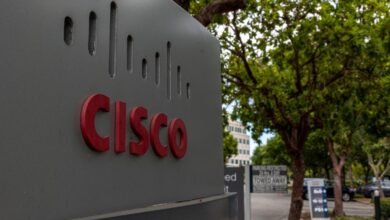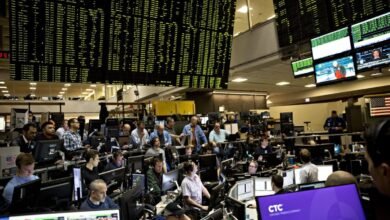Hertz went all in on Tesla — and is paying the price

Hertz (HTZ) stock recovered in midday trade following an early slide as the company reported a wider-than-expected fourth quarter loss due to its exposure to EVs, in particular its large Tesla (TSLA) fleet. What Hertz does next to its EV fleet —and its effect on Tesla —will be key to watch for both companies.
Hertz, in reporting an adjusted loss of $1.36 per share, wider than the $0.76 loss expected, was saddled with losses stemming from its decision to sell 20,000 Teslas, representing a third of its EV fleet. Hertz said last month it would take a $245 million charge from the sale of those cars due to high depreciation costs, in addition to higher costs for repairs for EVs, which dragged on the bottom line.
“We continue to experience elevated collision and damage in the quarter, largely driven by costs associated with running our EV fleet, and perhaps more significantly, the challenge of the EVs had an impact on our operational efficiency more generally, further supporting the advisability of our EV sales plan,” Hertz’s CEO, Stephen Scherr, said on the Q4 earnings conference call.
Scherr also said that further reductions to the company’s EV fleet — which would stand around 40,000 once all Tesla sales are completed — could be in the cards if necessary.
“I think the lesson of this, if you will, is that incremental steps to wrestle down the cost elements of the EVs were not going to work,” Scherr said on the call. “And as a consequence and as evident in the fourth quarter, the need to take a big bite out of this issue was one that was in front of us and we took it. And if that’s not enough, we’ll do more.”
Hertz went all in on EVs, then it didn’t
Hertz was an early adopter of EVs back in October 2021, announcing it would be buying 100,000 Teslas with great fanfare in a marketing campaign starring former NFL quarterback Tom Brady. At the time, Hertz, which was only a few months out of bankruptcy, saw its stock jump 10%, with Tesla shares jumping in sympathy. Tesla went to top $1 trillion in market capitalization for the first time.
Hertz also struck a deal with Polestar (PSNY) in February of 2022 to buy 65,000 of its EVs, though Hertz just this week informed Polestar that it would be pausing future purchases of its EVs. Hertz’s current fleet stands at around 13,000 Polestar vehicles.
A Polestar representative said to Yahoo Finance that though the companies were committed long term, Hertz would pause all EV purchases in 2024.
On the conference call, in reference to Polestar, Hertz said it was pausing all EV sales indefinitely, unless the EVs were part of package deals with other automakers. “By and large, we will be net lower for sure in the context of EVs based on the sale and based on a very de minimis number of EVs that come in,” Scherr said.
Scherr’s strong comments on EV inventory control and additional cost cutting of $250 million over the course of the year may have been enough to swing the stock back into the green following the earnings miss.
Hertz isn’t giving up on EVs, however. The company said it will redeploy EVs where it makes sense, but that it will be more careful in terms of supply and demand.
“We will also be positioned to better meet customer demand through higher utilization on fewer and less expensive ICE vehicles while maintaining an EV fleet where, again, supply better meets profitable demand,” Scherr said.
Scherr believes customers in certain parts of the country are more familiar with EVs and thus less likely to get into accidents, meaning a better RPD, or revenue per day, for those vehicles.
If Tesla is going to reach anywhere near a 50% compound annual growth rate, its targeted growth rate for vehicle deliveries in the past, it’s going to need more purchases from fleet operators like Hertz, and for larger swathes of the country to be more comfortable renting, and driving, EVs.
Pras Subramanian is a reporter for Yahoo Finance. You can follow him on Twitter and on Instagram.
Read the latest financial and business news from Yahoo Finance





